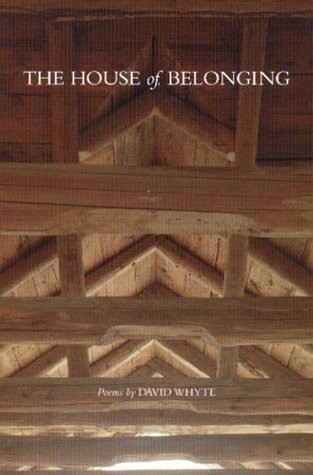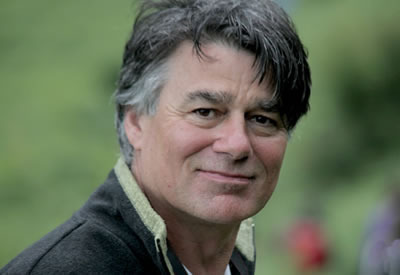
In this book, poet David Whyte turns his attention to the deepest longing of human beings - the desire to belong to people and places and the many ways of experiencing a sense of home. The House of Belonging has sold over 50,000 copies and contains some of his most beloved poems, such as The Truelove, The Journey, and Sweet Darkness. The deeply moving title poem reads as balm and benediction to wherever one finds one's home in the world, and taken together, the collection illuminates the myriad ways we belong - to others, to ourselves, and to the world.
Author

Poet David Whyte grew up with a strong, imaginative influence from his Irish mother among the hills and valleys of his father’s Yorkshire. He now makes his home in the Pacific Northwest of the United States. The author of seven books of poetry and three books of prose, David Whyte holds a degree in Marine Zoology and has traveled extensively, including living and working as a naturalist guide in the Galapagos Islands and leading anthropological and natural history expeditions in the Andes, Amazon and Himalaya. He brings this wealth of experience to his poetry, lectures and workshops. His life as a poet has created a readership and listenership in three normally mutually exclusive areas: the literate world of readings that most poets inhabit, the psychological and theological worlds of philosophical enquiry and the world of vocation, work and organizational leadership. An Associate Fellow at Said Business School at the University of Oxford, he is one of the few poets to take his perspectives on creativity into the field of organizational development, where he works with many European, American and international companies. In spring of 2008 he was awarded an honorary doctorate from Neumann College, Pennsylvania. In organizational settings, using poetry and thoughtful commentary, he illustrates how we can foster qualities of courage and engagement; qualities needed if we are to respond to today’s call for increased creativity and adaptability in the workplace. He brings a unique and important contribution to our understanding of the nature of individual and organizational change, particularly through his unique perspectives on Conversational Leadership.